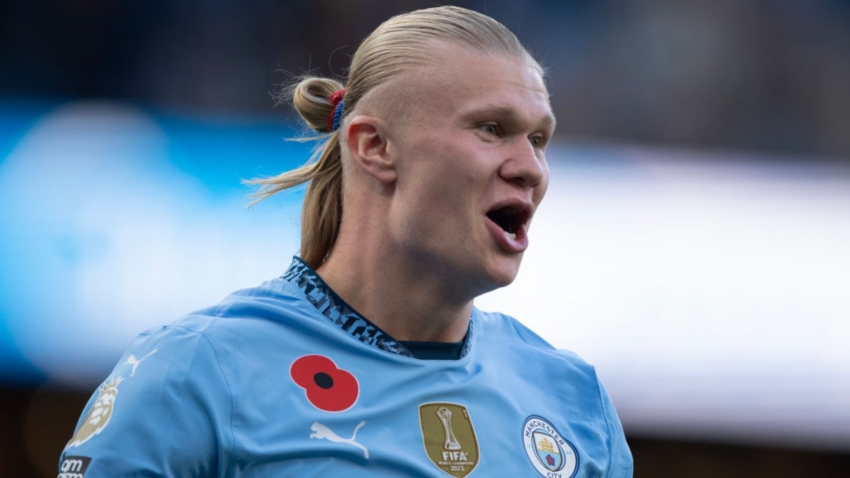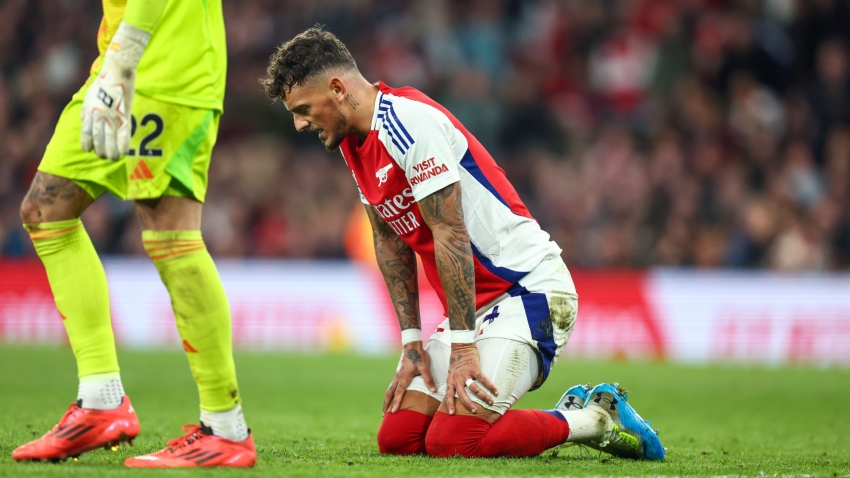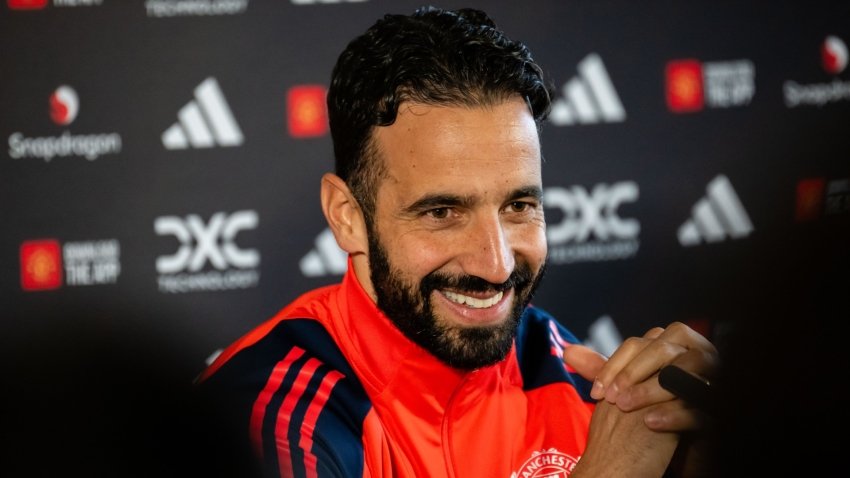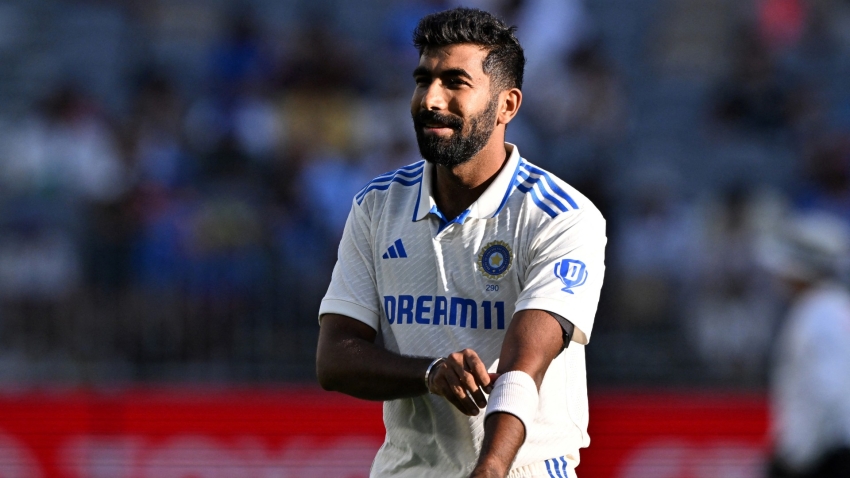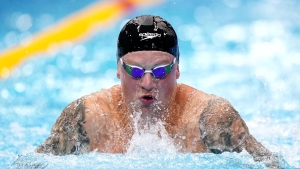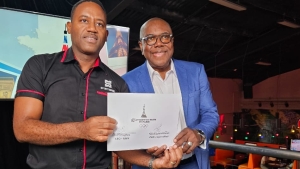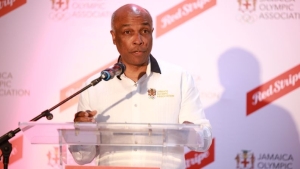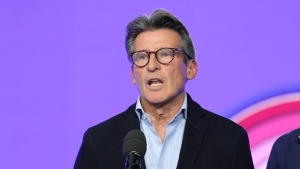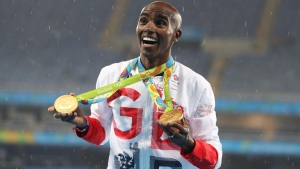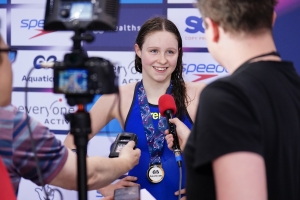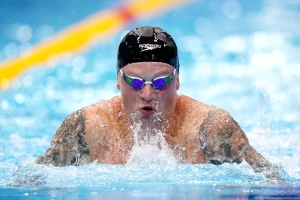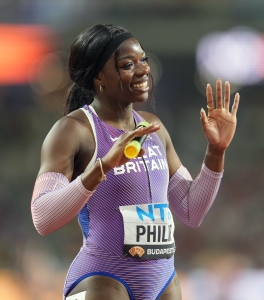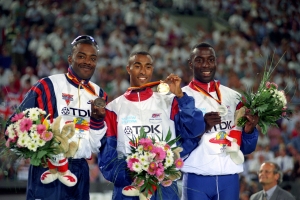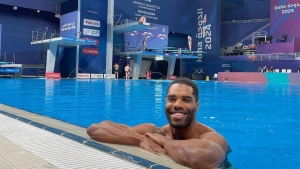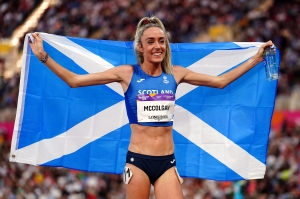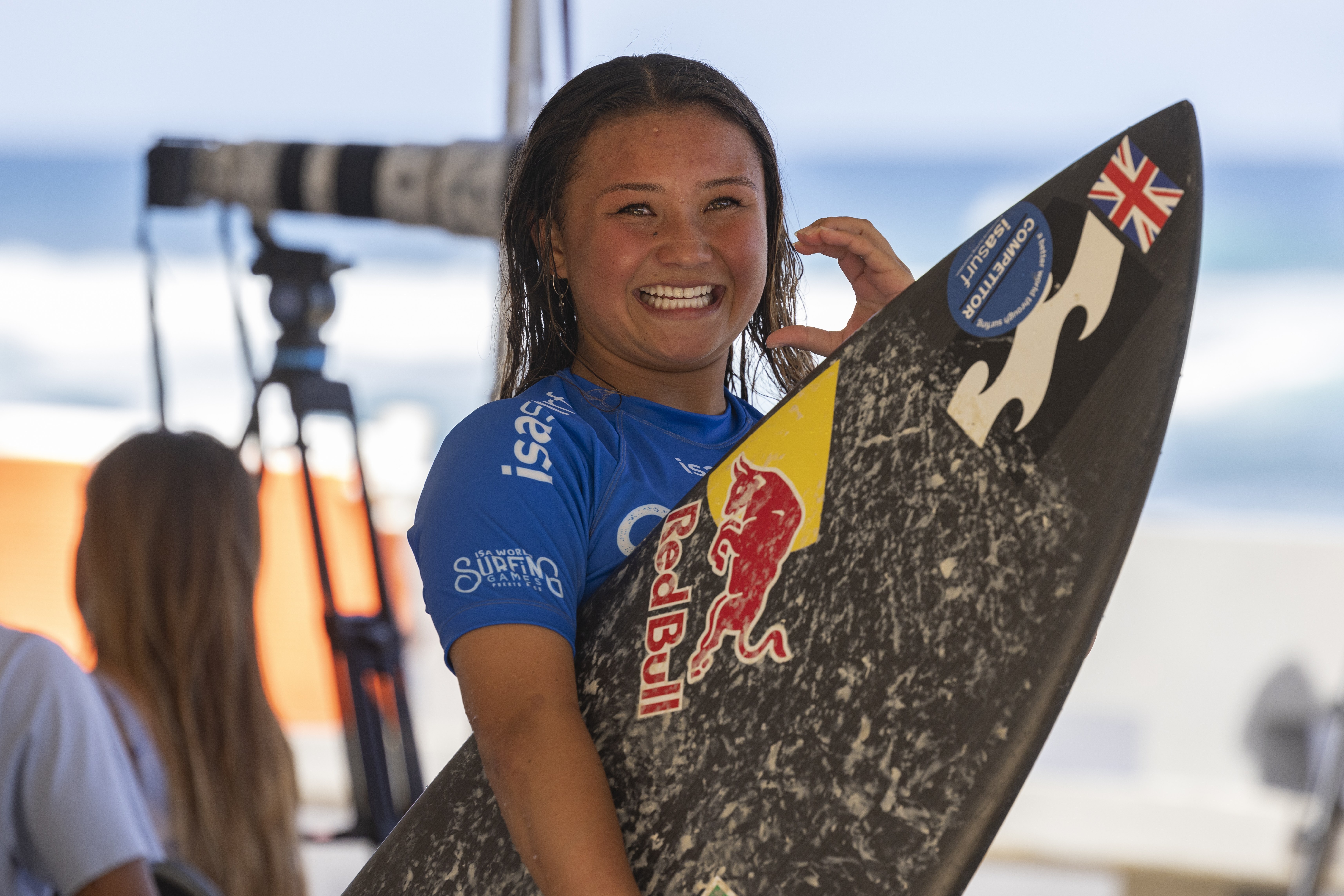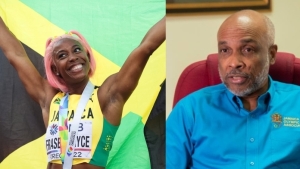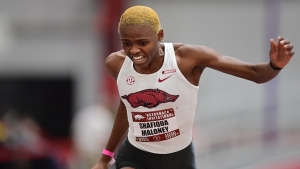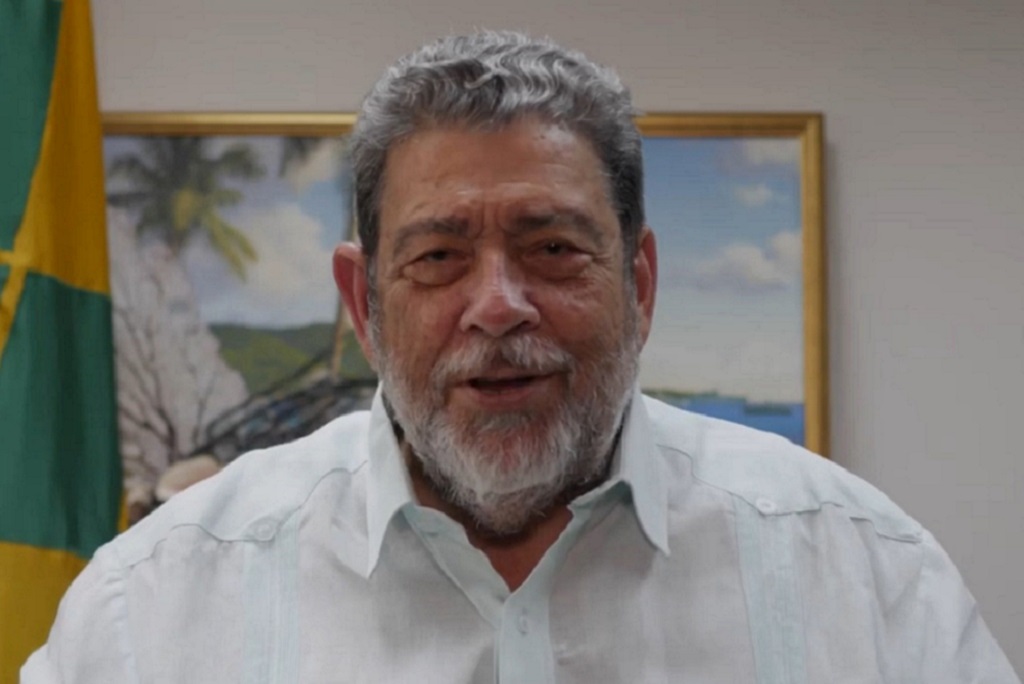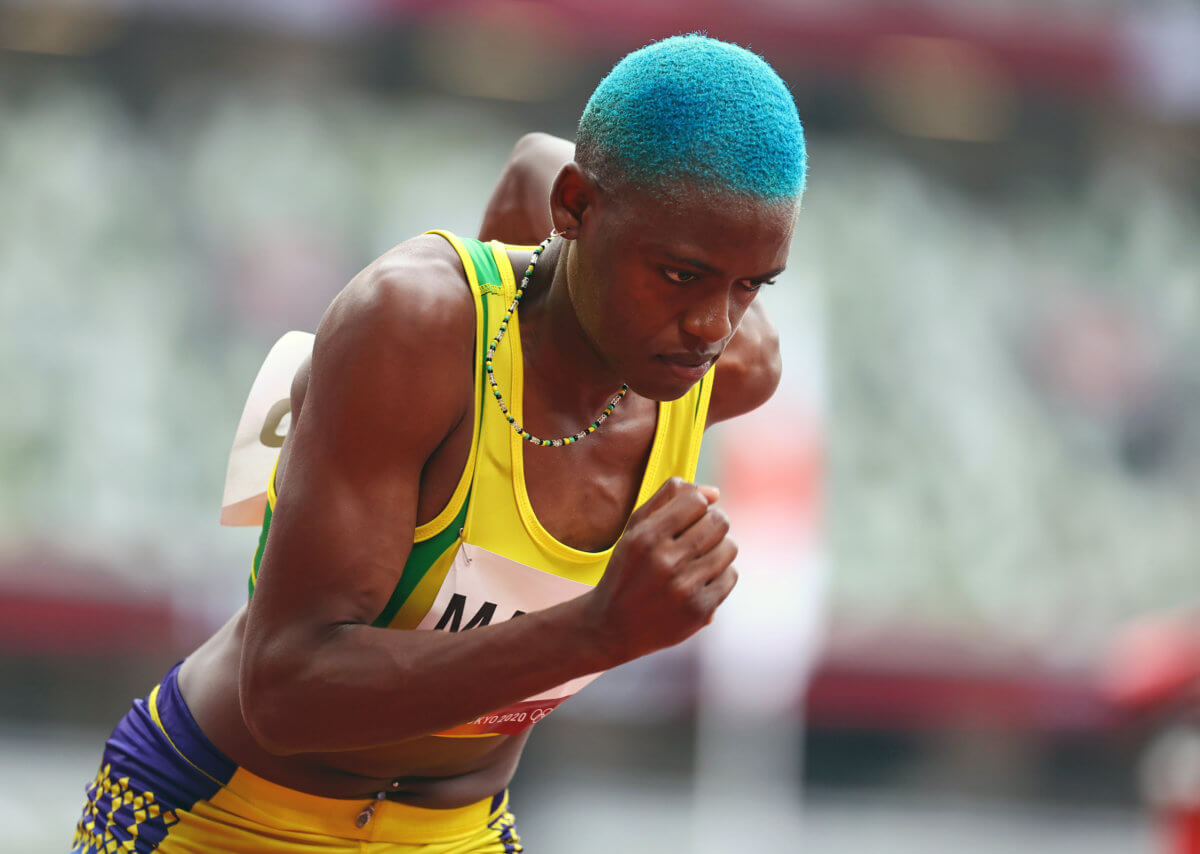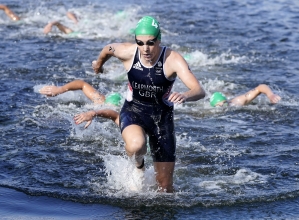It is hard not to be impressed by the sheer willpower and determination of Jamaica’s diving flagbearer Yona Knight-Wisdom.
While it is not surprising, as Olympians are often seen as the epitome of human performance given their incredible physical and mental strength, the manner in which Knight-Wisdom conducts himself is so businesslike that his financial challenges pale in comparison to his performances.
Despite having very little financial backing since he rose to prominence as Jamaica’s first-ever male diver to compete at the Commonwealth Games in 2014, Knight-wisdom has never lost hope and continues to establish himself on the global stage.
But while his ambition and immense ability shines through like the noonday sun, Knight-Wisdom is once again left contemplating his future in the sport, as he believes the hard work and sacrifice that goes into a thriving career means very little without the necessary funding.
This, as the task of achieving the Olympic dream requires financial accessibility, which Knight-Wisdom seldom has, as he sometimes struggles to make ends meet where preparation for, and getting into competitions are concerned.
It is for this reason why the talented diver, who recently qualified to represent Jamaica at a third-consecutive Olympic Games, might not push for a fourth, as the sport has been cruel in returning dividends on his spend.
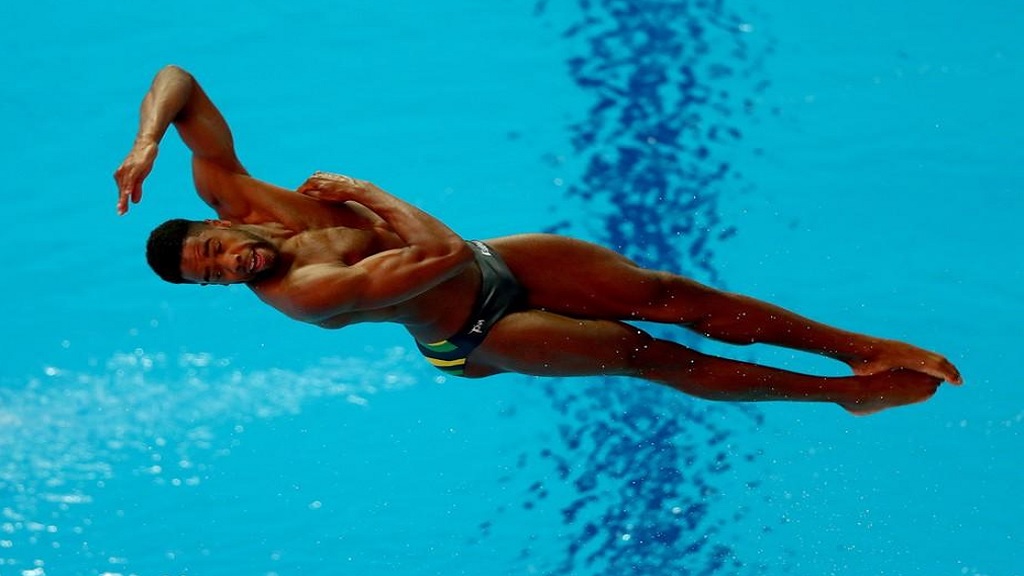
“There are many factors that I will have to take into consideration when looking at the future. I think my body would be able to cope with another four years because I’m very professional and committed to doing things in the right way,” he declared.
“The main question for me is value. Of course, it would be amazing to chase a fourth Olympic Games, but there isn’t much money in diving, it takes a lot of personal and financial sacrifice, and I need to figure out if there is enough value in it,” Knight-Wisdom told SportsMax.TV from his base in the United Kingdom.
Though Knight-Wisdom’s hardship isn’t unique, as many athletes look for ways to make ends meet while training, it is the grace and faith that the English-born diver, whose mother is Barbadian and father Jamaican, exudes as he represents the country with much gusto that stands out.
Like his admirers, Knight-Wisdom continues to bask in the fact that he will again represent the country at a third consecutive Olympic Games, as he recently secured an automatic quota spot to this summer’s Paris Olympics Games.
Unlike Rio in 2016 and Tokyo 2020, this qualification struck an emotional chord for Knight-Wisdom, whose progress was derailed by ruptured rectus femoris tendons in his left knee late in 2022, which required surgery and months of rehabilitation for recovery.
“Yes, the emotion certainly caught me briefly after the preliminary round. Competing against 70 other divers and doing a dive every 50 minutes or so was a major mental battle…when you know you can’t afford to make a big mistake with each dive, 50 minutes is a lot of time for your brain to play tricks on you,” Knight-Wisdom shared.
“The hard work I put in before my injury and the motivation to recover and get ready for 2024 meant that I was feeling good and confident coming into this event, so I’m grateful and relieved it has resulted in a positive outcome,” he added.
That confidence stemmed from the fact that Knight-Wisdom sets appropriate goals, which helps to track his progress and provides feedback about the areas of his dives that need to be strengthened.
Add to that the fact that he holds strict expectations which does not allow for areas of his dives to be weak, thereby ensuring that he gives a capital effort on each occasion.
Still, the results were not always what he expected along the way.
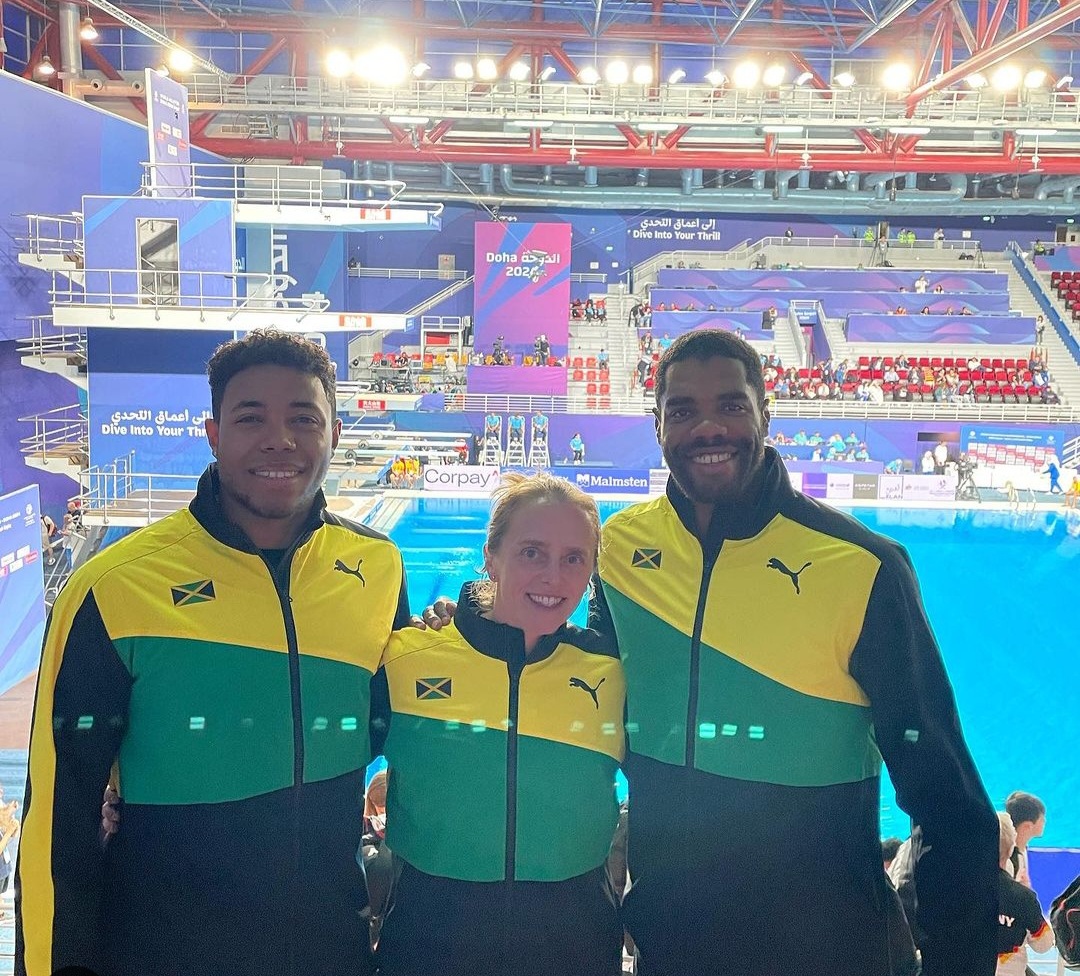
But given his unwavering commitment and determination to reap success for the black, green and gold, Knight-Wisdom kept plugging away at training knowing very well that it takes flawless routines to turn his fortunes around.
The 28-year-old has shown in the past that he possesses enough ability to rise to the occasion when it matters most, and that he did at the World Aquatics Championships, where he ended with a semi-final score of 368.95.
“My performances were actually a little lower than I was hoping for, though that is because I anticipated the qualification standard would be a little higher than it was in the end. My dives were good and solid throughout, with only one major mistake in the semi-final, but they all need to be refined and improved to attract even higher scores from the judges when I do them well. But overall, my performances were similar to how my training has been, so I have no complaints,” Knight-Wisdom said.
“This time round I think I was more expectant that I would qualify, even considering the injury. It definitely wasn’t a certainty, but I wasn’t relying on hope and belief as much as I was for Rio or Tokyo. I feel like I’ve done what most people, including myself, thought I would do. I don’t think many people will be shocked or surprised that I have qualified this time so it did sink in very quickly and I was straight to thinking how I can get better,” he reasoned.
That said, the lanky six-foot tall diver declared his intentions to possibly spring a surprise in Paris, provided he maintains a clean bill of health to improve on his current vein of form.
“I’d love to put myself in a position to produce a shocking result in the summer. I just need to keep doing what I’ve been doing,” he stated.
“This (qualification) was another stepping stone on my journey back to peak performance, a potential obstacle successfully negotiated, so I will just continue working on improving the finer details of my dives and on more consistent execution. My confidence will continue to build going forward which will be displayed in my dives,” Knight-Wisdom ended.









